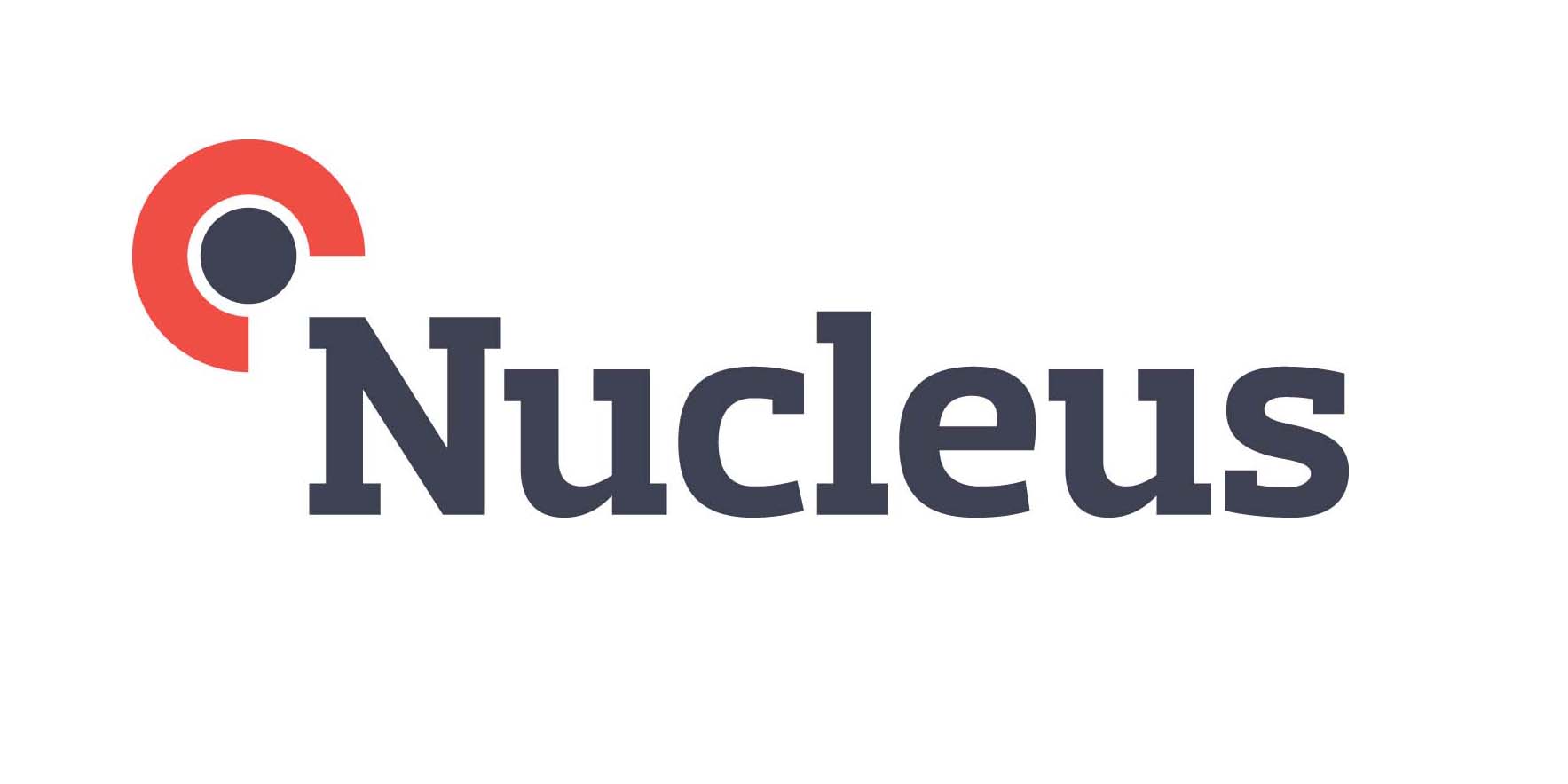Published
- 07:00 am

Worldwide end-user spending on public cloud services is forecast to grow 18.4% in 2021 to total US$304.9 billion. This is up from US$257.5 billion in 2020, according to Gartner, Inc.
Whilst these numbers are encouraging and perhaps overwhelming, this does not give a true sense of “value” spent by companies on cloud. The emphasis is on “value” because it is estimated that only 70% of the money spent on cloud is efficient and the rest wasted. There are various strategies that organizations have initiated to avoid these wastages, including adopting a “Cost first” approach to their cloud journey.
When taking a cost first approach, you become proactive when it comes to cloud spend. It is understandable that when an organization embarks on their cloud journey, adaptability and feasibility of their applications on cloud is the prime consideration rather than cost. However, once that has proved successful, cost must shift left.
To understand the cost first approach, let’s first look at the functionality of the centralized Cloud Governance Team. There are many roles of this governance body, but the main ones include:
- Choosing one or more public cloud providers.
- Certifying a set of services that can (and cannot) be used by the teams within the organization.
- Monitoring cloud spent by each business unit in the organization.
- Centralizing access management on cloud.
- Defining standards and best practices for all to use.
“Monitoring cloud spent by each business unit” has a direct reference to cost, but it’s not necessarily a cost first approach. If there is no cloud budget set out for business units, then it’s a reactive approach. If business units are billed based on only what they consume, there is no way of knowing if they put an emphasis on optimizing cost.
To put a cost first approach at the fore, budgets must be defined. These budgets should be broken down into the following categories:
- Running Cost – The cost that will be incurred month over month for the resources that are already running on cloud.
- Onboarding Cost – The cost that is expected to incur on newer cloud applications (migration or green field) and planned to be onboarded during the current year.
- Exploration/Experimenting Cost – The cost for conducting Proof of Concept’s (PoC’s) with the newer or un-certified services. Businesses need to create PoC’s to show the cloud governance team why they should invest in extending the list of certified cloud services.
- Training Cost – The cost for upskilling the team. This includes attending summits, webinars, certification reimbursements, eLearning platform subscriptions fees etc.
All four categories listed are related -- without training, there won’t be exploration, without exploration there won’t be any optimization of the running cost and without optimization onboarding, onboarding new applications would be like putting money into a blackhole.
The category that requires the highest budget is the running cost, closely followed by new application onboarding, training and exploration costs.

Fig 1: Cost first approach
The purpose of putting the entire cost into separate buckets is mainly to introspect at any given point in time. If the running cost is increasing and the exploration and training costs are decreasing to maintain budget, it’s normally an indication the business unit is not investing much effort to optimize the cost. Ideally, it should be training costs increasing (promote P2P knowledge sharing rather than individuals gaining knowledge externally), exploration costs increasing and running cost either maintained at the same level or decreasing. The “cost first” practice at this point will ensure that you are using the budget efficiently.
One key point to remember is that the “cost first” approach should only come into effect after at least 2 years of cloud adoption by the organization. It takes time to understand and adapt to the cost aspect on cloud. This is primarily because of its complexity as Capital Expenditure (CapEx) vs. Operating Expenditure (OPEX) are good for discussions but in practice, is very different. Secondly, it changes from one cloud service to another.
Once this approach has been followed for some time, the previous years’ performance should govern the current years’ budget. Onboarding newer applications onto the cloud should be the main factor for the budget increase but if there was no improvement shown for the existing workload on cloud, there will be more wastage. Incentivization for business units working within the limits and questioning the ones that missed it is an approach to take. The essence of a cost-first approach is that, if you work within your budget, you will shift left.
Related News
- 01:00 am

- UK Scale-Up will provide international FinTechs with a ‘digital home’ in the UK to enable collaboration with financial institutions
- The new initiative, which is in partnership with the data analytics business The Disruption House, will also provide FinTechs with advice, invitations to tech sprints and access to market insights
- The government continues to support the FinTech industry, with recent speculations the Chancellor will unveil a visa fast track scheme for professionals in the tech industry to live and work in the UK
TISAtech, a digital market network that brings together financial institutions and FinTechs for greater collaboration and innovation, today announces the launch of UK Scale-Up. The initiative will help international FinTechs access the UK and partner with financial institutions, in particular banks, insurers and asset managers. TISAtech was launched by The Investing and Savings Alliance (TISA), the cross-industry financial services body, last year.
The UK Scale-Up initiative is designed to help FinTechs be discovered, stand out, accelerate engagement and monitor prospect interest during this period when usual routes to market, such as events and conferences, have been restricted due to the pandemic. The initiative catalyses corporate and FinTech engagement, building technology focussed communities and accelerating innovation through direct industry promotion and structured engagement.
TISAtech has created a digital ‘tech-bridge’ into the UK, which means a low risk, low cost, low carbon engagement strategy with a high-profile upside at a fraction of the cost of a typical industry event presence for FinTechs. Additionally, they will have access to personalised advice and support, monthly platform insights on institutional interest, receive monthly trends updates from TISA initiatives, and will be automatically invited to tech sprints relevant to their domain and to industry events.
The database already has 3,600 FinTechs, which are sophisticatedly assessed and profiled, 2,500 of which are based outside of the UK. For financial institutions, the enhanced scouting, discovery and identification process allows business leaders to scope-out and profile the suitability of FinTechs rapidly and on a single platform. It helps the financial services industry to more effectively address tech-driven transformation and the integration of new financial technologies to enhance products and services while reducing operational friction and lowering costs for consumers.
The UK Scale-Up initiative has been created in partnership with The Disruption House, the specialist benchmarking and data analytics business for financial institutions and innovative financial technology firms. Benchmarked scorecard assessments provide FinTechs with the credentials and exposure to develop successful relationships with leading financial institutions. They provide clarity on FinTech’s current capabilities, demonstrating enterprise readiness and ESG alignment, which is creating far more effective FinTech promotion, positioning and engagement than could be achieved through expensive industry events alone.
Gary Bond, CEO of TISAtech, said: “The FinTech industry needs initiatives like this now more than ever. The pandemic has caused major disruptions to trade shows and travel which have prevented growing FinTechs from expanding internationally and engaging in the market. The UK Scale-Up initiative allows FinTechs be discovered, stand out and monitor prospective interest during this period when, as a result of Covid-19, usual routes to market have been shut off. TISAtech is in the perfect position to become the industry go-to location for the sourcing the most innovative FinTechs that will help the industry adjust to the new normal of embracing digital technologies that can transform all aspects of businesses.”
David Dalton-Brown, CEO of TISA, said: “FinTech is a booming industry across the world. We know FinTechs want to enter the UK, a global financial hub, to help provide innovative technology solutions to financial services firms. TISAtech facilitates and accelerates powerful partnerships between our members and exciting, scale up FinTechs. We’re also pleased to see that the government is continuing to recognise the importance of this market, as it is expected a fast track visa will be introduced for technology professionals to live and work in the UK.”
Related News
- 02:00 am

Mastercard Engage platform expansion provides customers with fast and easy access to new set of qualified technology partners
Mastercard is expanding the Engage platform, offering customers easy access to a growing network of qualified technology and fintech partners that can quickly deploy Mastercard Digital First solutions. These solutions will enable customers to provide entirely digital payment experiences for consumers, from acquisition and card usage to management and engagement, with a physical card option.
“The expansion of Mastercard Engage is happening at a critical time when financial institutions and digital players are seeking to fulfill consumer demand for digital experiences but may not have all of the in-house capabilities to do so,” said Andrea Scerch, President, Consumer Products for Issuers. “Instead of merely supporting physical cards with digital experiences, we are powering consumer choice by building a robust network of qualified enablers that can help our customers quickly launch digital products from the ground up.”
The Mastercard Engage network includes partners that provide various components and integration capabilities across the Digital First customer journey to deliver a frictionless payment experience, including Signzy to support digital onboarding and instant eKYC services, Provenir to provide real-time risk decisioning, issuer processors such as Galileo, i2c and Marqeta, and end-to-end Digital First enablers Thales and Verestro.
Mastercard has a long history of working with technology and fintech partners to build the future of payments. The evolution of the Mastercard Engage platform demonstrates the company’s continued commitment to enabling customers in building out their digital first consumer journey.
The Mastercard Engage program is now open to support Digital First deployment, provide on-the-ground assistance as well as training through the Mastercard Academy, and promotion to Mastercard’s extensive customer base. Visit the Mastercard Engage website for more information.
Quote Sheet:
“The COVID-19 pandemic has necessitated business continuity solutions and seamless digital customer experiences that require minimal interaction,” said Arpit Ratan, Co-Founder and Business Head at Signzy. “We’re proud to continue our partnership with Mastercard through the Engage program to support digital onboarding for digital first solutions.”
“Agility and innovation are key in a digital-first market and businesses need purpose-built technology designed to outpace market evolution,” said Larry Smith, Founder and CEO at Provenir. “We’re excited to bring Provenir’s real-time risk decisioning technology to the Mastercard Engage network to help deploy best-in-class solutions.”
“Today’s consumers expect frictionless digital payments experiences, and Galileo is meeting this demand by making it easy for their financial services providers to be digital-first and even digital-only with great features like push provisioning to mobile wallets, virtual cards and more," said Clay Wilkes, CEO at Galileo. "As a partner on the Mastercard Engage platform, we’re providing businesses with digital payment capabilities they can build on to heighten their customers' payments convenience, access and security.”
“Enabling seamless digital experiences is central to modern financial life and so we’re thrilled to help Mastercard customers in their pursuit of Digital First programs,” said Jim McCarthy, President at i2c. “i2c has been at the forefront of digital transformation and our highly-configurable, single global platform is uniquely qualified to support these deployments – we're genuinely excited to be recognized as a Mastercard Engage provider.”
“Consumers have come to expect seamless digital experiences and want to be able to manage all parts of their financial life through digital channels. We’re thrilled to help Mastercard customers more easily launch Digital First programs that speak to these demands,” said Salman Syed, SVP and GM, North America at Marqeta. “We look forward to our modern card issuing technology delivering value for tomorrow's innovators and are excited to be a qualified provider on the Mastercard Engage platform.”
“We are thrilled to be qualified as an early Digital First partner on the Mastercard Engage platform,” said François Chaffard, VP, Digital Banking & Payment at Thales. “Our end-to-end digital issuance solution enables Financial Institutions to leverage their existing assets and offer an optimized mobile-first digital experience to their customers.”
“Frictionless digital first solutions are made possible through end-to-end API platforms,” said Krzysztof Drzyzga, CEO at Verestro. “As part of the Mastercard Engage platform, we provide enablement capabilities across the entire digital first journey for banks and fintech partners looking to deploy digital solutions quickly.”
Related News
- 01:00 am

Medius, a leading provider of cloud-based spend management solutions, reports strong 2020 performance – with a 49% increase in new sales – despite the challenging macro environment. During the year, the company has also successfully integrated Wax Digital into the global business, following acquisition in Q4 2019.
Medius’ new ACV (Annualized Contract Value) sales grew by 49% in 2020. The company has built a strong foundation for continued growth with its subscription-based sales model, with recurring revenue accounting for 78% of total revenues during the year. CARR (Contracted Annualized Recurring Revenue) at the end of the period was 543M SEK (66M USD).
Per Åkerberg, Medius CEO, comments: “I’m pleased to report that Medius’ position in the market and financial health remain strong – even after the difficult year that we’ve all experienced. We have seen positive developments on all key metrics and haven’t furloughed any of our employees during 2020."
“On the contrary, we’ve grown our team given the high demand that we continue to experience for our products, from both new and existing customers.”
In addition to supporting its customers during a challenging year, Medius successfully integrated Wax Digital, after acquiring the business in November 2019, to become the de-facto provider of spend management solutions. During 2020, the two companies have merged into one organization and integrated their respective solution sets to one modular suite supporting businesses in every step of the source to pay journey. The combined offering has led to Medius being recognized as a ‘Visionary’ and ‘Leader’ by global analysts Gartner and IDC, respectively.
Åkerberg continues: “With our fully integrated product offering we’re now in a position to offer a complete spend management suite, designed to holistically unify the CFO and CPO agenda in one streamlined, easy-to-use solution suite. The sales impact has been immediate - customers love the integrated solution suite or having the option to pick and choose the products that they need.”
Backed by strong financial and sales performance in 2020, Medius is pleased to announce its new website and product offering at www.medius.com.
For more information:
Thomas Müllertz, CMO, Medius thomas.mullertz@medius-group.com
Per Åkerberg, CEO, Medius per.akerberg@medius-group.com
Related News
- 06:00 am

Building on its commitment to drive positive change through its data and insights, Refinitiv today, in celebration of International Women’s Day, announced the findings of its report titled, ‘The Gender Pay Gap and your Investment Strategies.’ The new report uses Refinitiv ESG data and several FTSE Russell indices as a basis to examine the current state of the gender pay gap and the corresponding financial performance of different investment portfolios.
According to the report, it is important for a company to address the gender pay gap for several reasons:
- In some jurisdictions, equal pay is the law.
- Lower pay for women affects pension contributions and financial stability for many families now and later in life.
- Professional performance and relationships may be negatively affected.
- Employee churn rates may be higher.
David Craig, Group Head, Data & Analytics, CEO Refinitiv, LSEG, said: “Though we continue to see more companies disclosing gender pay gap data in 2020, both disclosure and performance have a long way to go before we see the gender pay gap vanishing. Our ESG data and research show that closing the gender pay gap is not idealistic, nor is it a nice to have, it is a business imperative for companies of all sizes and geographies.”
In addition to Refinitiv ESG database, ‘The Gender Pay Gap and your Investment Strategies’ report sources several FTSE Russell indices as a basis for portfolio analytics, including FTSE All World, FTSE Asia Pacific, FTSE Europe, FTSE North America and FTSE Developed.
Key findings of ‘The Gender Pay Gap and your Investment Strategies’ report include:
- The gender pay gap has been a persistent issue in the labour market over the decades. The good news is that more companies are reporting gender pay gaps, due to pressure from investors and customers, government regulation or efforts to improve their ESG performance and scores.
- Refinitiv ESG data shows that company disclosure continues to rise, with 748 companies disclosing gender pay gaps in the 2020, a 10% increase from 678 firms the year before.
- Using several FTSE Russell indices as a basis for our portfolio analytics, our report reveals that all ‘No gender pay gap’ portfolios outperform those with a gender pay gap.
- Stand-out industries in our ‘No gender pay gap’ portfolios are Technology Equipment and Software & IT services.
- Examining countries in our ‘No gender pay gap’ FTSE Europe portfolio, we found that Germany has the biggest presence in the portfolio (21.66%), followed by Switzerland, Russia and the Netherlands.
- We found that companies in the FTSE Asia Pacific Index with no gender pay gap to have cumulative returns that outperform by a spread of 55.10% when benchmarked against all companies with a negative pay gap for women in the same index.
For a copy of ‘The Gender Pay Gap and your Investment Strategies’ report, please visit: https://www.refinitiv.com/en/resources/special-report/gender-pay-gap-report .
Refinitiv ESG data helps investors make more informed, sustainable investment decisions. Refinitiv ESG data covers more than 80% of global market cap across hundreds of ESG raw and analytic data metrics.
Related News
- 02:00 am

Sercle, the Credit Union arm of Omnio Group has announced its partnership with Nivo to integrate its services with Omnio’s market leading platform. Through the partnership, every Sercle Credit Union can offer members a market-leading mobile experience with full access to Nivo’s secure messaging and onboarding technology.
Nivo’s mobile messaging has already achieved dramatic results with existing Credit Union clients, enabling them to serve more members, faster, with less manual effort. Recent results include doubling member onboarding and same day loans, as well as 2,000 five-star app reviews from member end-users.
Through this partnership, Sercle is making Nivo’s technology even more accessible and valuable by investing in integrating Nivo with the core Sercle platform. Combining the two technologies will allow for 24/7 automated services such as balance enquiries, withdrawal requests, and applications. The integrated solution will include a Sercle branded mobile app and the choice for credit unions to have their own branded apps.
For Credit Unions using the service, reliance on paper, phone, e-mail, and post will be a thing of the past. Multi-channel processes will be replaced by flexible and personalised messaging communication as well as automated journeys powered with the same FinTech features used by challenger banks like Revolut and Monzo.
The technology also addresses the pressing need for credit unions to shift away from sharing personal information over email and helps to keep members safe from fraud in the face of rising cybercrime, which is reported to have shot up by 400% since the start of the pandemic.
This is the first time that over 130 Credit Unions and their members will be able to access secure instant messaging, biometric identity verification, E-signing, secure document sharing and data gathering forms, fully integrated with a single core platform.
Lindsay Ward, Executive Director of Sercle commented: “After an impressive 2020, this deal represents one of the most important partnerships for the Credit Union sector yet. We have always listened to our clients and Nivo kept being brought to our attention. We wanted to form this partnership because Nivo stood out as a trusted and progressive force for good in the Credit Union sector, and also because of the principled position they have taken in an area that has historically been under-served by technology. Proving that, with aspiration and the right technology, you can grow your loan book, increase your membership, and you can provide secure, informed, instant decisions. The Sercle/Nivo partnership is something we are very proud of."
“Sercle are offering this service to every one of our platform partners. It will give each credit union the ability not only to subscribe to this service, but also to become part of a very powerful community network, growing and promoting responsible lending to everyone. In this way, more and more Credit Unions will be able to help some of the most vulnerable in society: those who have been left behind by the digital banking revolution and those who need it the most,” concluded Ward.
Matthew Elliott from Nivo: “Making it easier for Credit Unions to access leading FinTech so that more people can get the best financial products for them has been a core part of our mission since day one. We’ve seen incredible advocacy across members and credit unions for what we do, but also felt frustrated that we couldn’t meet their wish to have things more integrated to their core platform. We’re delighted that Sercle are investing in integrating, confident that this will enable a new level of efficiency, and excited by the potential of Sercle’s huge access and distribution base across credit unions really getting the service out in to the hands of more people whose lives will be easier as a result.”
Credit Union Testimonials:
Ciara Davies, CEO, Metro Moneywise commented “Nivo has been transformative for our credit union as almost overnight it allowed us to replace a manual loan application process with a fully digital one which allowed us to be much more efficient. However, the best thing about Nivo is the member experience."
“Our members find Nivo quick, easy, and intuitive to use. By using Nivo they can complete the whole loan application process on their phone in just a few minutes. It was already our ambition to bring more functionality into Nivo and this integration with Sercle is a really exciting opportunity for us to provide our members with a better digital experience and streamline our internal processes even further.”
Hans Billman of GMB Credit Union said: “GMBCU was an early adopter of Nivo and the service has proved very popular with both members and staff. Being able to refocus our service deliver in a secure, informal manner around mobile phones has transformed how we onboard members and service our loans. 99% of our loans are now completed through Nivo and over the last few years Nivo has enabled us to grow our loan book significantly without a corresponding increase in staffing levels.”
Sheenagh Young, Chief Executive at South Manchester said: “Our community credit union has now been using Nivo for almost three years and it has had a deep and lasting impact on the quality of service we offer. It's easy for members to get started and provides a safe and simple way to exchange information regarding loan applications and account enquiries. We regularly receive positive feedback on the quality of our technology from our 4,500 members and we know Nivo has a lot to do with it. Our Google reviews often refer to appreciation of Nivo."
"We are excited that our two key technology tools will be integrated. For members it will mean that they will be able to perform simple requests like balance enquiries or a savings withdrawal using self-service. For our team, it will save us time so that we will be able to focus on coaching members in growing financial confidence to improve their wellbeing.”
Related News
- 08:00 am

HPD Lendscape, a leading international secured-lending platform vendor, today announces that it has become an official member of The Spanish Association of Factoring (AEF). The announcement comes at a time when HPD Lendscape is particularly focused on serving the Iberian market, having just launched a new Spanish-language website.
The membership ensures that HPD Lendscape can provide the highest level of service to banks and financial institutions in the region, thereby increasing the funding available to the region’s SMEs, which have been negatively impacted by the pandemic. Factoring, along with wider bank support and government initiatives, is one major route to liquidity for Spain’s SMEs, with total factoring volumes in Spain reaching €182bn in 2020. The commercial credits managed by AEF’s members as a proportion of Spain’s GDP increased to 22.44% in 2020.
The AEF was founded in 1988 and includes almost all the specialised credit institutions in the country, representing around 75% of the total Spanish Factoring and Confirming market. It currently has 20 members, both credit institutions and other commercial entities, including major banks such as BBVA, Santander, CaixaBank and BNP Paribas. The AEF is also a Permanent Member of the Steering Committee of the EU Federation.
The AEF brings together factors serving the region and represents them in front of the various institutions of the Spanish state. It promotes factoring activity in the country and abroad, produces reports, research and studies that shed light on the financing environment in the country, and aims to evolve the factoring profession as a whole. It also promotes initiatives among members that foster mutually beneficial professional development.
Kevin Day, CEO of HPD LendScape, said: “We’re thrilled to have been accepted as a member of the AEF. This collaboration ensures we stay close to the Spanish market to which we can offer new levels of support and contribute with our international industry expertise and best practices, ensuring that banks and non-bank financial institutions can continue to provide much needed funding and liquidity to Spain’s SMEs. For HPD Lendscape, it is further evidence of our growing presence in Europe as well as our focus on the Iberia region, and we look forward to working together closely with other AEF members to promote and enhance the Factoring profession in Spain.”
Related News
- 05:00 am

Capital on Tap, a leading European Digital B2B lender listed by Forbes as one of the fastest-growing companies in the UK is launching in the United States, providing access to much-needed financial support for American small and medium-sized businesses (SMBs) through its innovative business credit card proposition.
Capital on Tap is partnering with WebBank, which is the issuer and lender in the Capital on Tap credit card program.
With a goal of supporting 10,000+ businesses in the first year, Capital on Tap’s expansion follows hot on the heels of its successful launch in Spain in 2020. The standard offering for the US market will deliver 1% cashback on all purchases with no foreign exchange fees, while a premium product will provide 2% cashback and include a $199 annual fee. Both products will offer credit lines of up to $50,000 to support small businesses.
Working constraints related to COVID-19 forced Capital on Tap and WebBank to work more creatively on the launch of the US product. Despite these restrictions and limitations in the 100% remote environment, the time from conception to launch was less than 5 months.
“The team worked tirelessly to get the product prepared for launch. COVID-19 and the subsequent economic downturn have meant challenging times for SMBs and the Capital on Tap business credit card will provide access to crucial working capital and also a range of features built just for SMBs,” Zoe Newman, Head of International Expansion at Capital on Tap, explains. There was a clear opportunity in the US SMB market for an alternative approach to B2B lending.
“We’re looking forward to the partnership with WebBank and bringing the Capital on Tap business credit card to the US market and serving local SMBs, providing business owners and their employees with new levels of control over funds for growth and business development in addition to supporting cash flow,” she said.
“At WebBank, we partner with strategic platforms that are developing innovative technologies to make financial services more accessible.” said Jason Lloyd, President at WebBank. “Capital on Tap has proven itself as a visionary platform. Their relentless focus on empowering small business owners makes them an ideal partner. We are excited to work with Capital on Tap to bring the power of fintech to small businesses in the US, ultimately improving the ability of small business owners to manage their companies more successfully every day.”
Related News
- 05:00 am

Colt Technology Services has today announced that it has been included in the March 2021 Gartner Magic Quadrant for Network Services, Global, positioned as a Visionary.
This is the second year in a row Colt Technology Services has been named as a Visionary in the Gartner Magic Quadrant for Network Services, Global.
Keri Gilder, Chief Executive Officer, at Colt commented: “This past year has shown more than ever that being inspired in our focus is critical for our customers and also for the longevity of our business. Colt strives to take what’s always been in our DNA to create an environment of constant transformation that puts enterprises in the best possible position to tackle today’s business challenges."
“We believe being recognised for the second time as a Visionary in the Magic Quadrant report shows that we remain at the forefront of our industry, which is even more critical than it’s ever been. We couldn’t be prouder to be recognised in this way again, and it only strengthens our commitment to continuing to transform the way the world works through the power of connectivity.”
The Colt IQ Network, which is comprised of more than 900 data centres and over 29,000 on net buildings, paired with its growing partner ecosystem of Cloud Service Providers (CSPs) and Systems Integrators (SIs) puts Colt in the perfect position to enable organisations’ digital transformations.
Find out more about Colt’s inclusion in the 2021 Gartner Magic Quadrant for Network Services, Global and March 2021 Critical Capabilities for Network Services, Global report here.
Gartner disclaimer
Gartner does not endorse any vendor, product or service depicted in its research publications, and does not advise technology users to select only those vendors with the highest ratings or other designation. Gartner research publications consist of the opinions of Gartner’s research organisation and should not be construed as statements of fact. Gartner disclaims all warranties, express or implied, with respect to this research, including any warranties of merchantability or fitness for a particular purpose.
Related News
- 05:00 am

Nucleus Commercial Finance, one of the UK’s leading fintech lenders, has today announced the launch of Business Growth Loans. This is the first product of its kind designed to support SMEs as a top-up to the government’s Coronavirus Business Interruption Loan Scheme (CBILS), as well as helping businesses nationwide with additional funding once the scheme ends.
Business Growth Loans are powered by Nucleus’ award-winning technology, enabling SMEs to apply, get decisions and receive funding within hours. This technology is leading the way in the industry, with automated decisions using machine learning and AI, allowing businesses to receive the money they need quickly.
With SMEs expected to face a significant funding gap once CBILS finishes on 31 March, Business Growth Loans provide SMEs with immediate and flexible financial support to operate in the ongoing challenging environment. Limits start from £3,000 up to a maximum of £25,000, with a term of six months. Qualifying businesses will have the option to apply for a top-up every quarter.
Brokers and introducers will be able to submit Business Growth Loans applications to the industry-leading myNucleus portal. Businesses can also directly apply via Nucleus’ website.
Chirag Shah, CEO, Nucleus Commercial Finance comments: “We continue to be fully supportive of CBILS and are proud to have lent a total of £180m to date through the scheme. Our lending through CBILS means we can see the additional support businesses currently require and the funding gap it will leave once the scheme ends. This has driven us to design a product that will continue to provide businesses with the vital finance they need to survive and recover.”
The launch of Business Growth Loans follows Nucleus securing a new £200m funding line in January from two global investment management firms. The finance increases Nucleus’ capacity to support businesses in 2021 through this new product and a number of existing solutions.
Shah added: “The ability for SMEs to apply, get a decision and receive funding on the same day demonstrates the power of technology in the lending process. Investment in innovation from fintechs means we are best positioned in the industry to support SMEs post-CBILS thanks to the ability to design flexible products. These creative solutions, which are driven by cutting-edge technology, will further reinforce that fintechs can no longer be considered an alternative; we are the true mainstream lender.”









